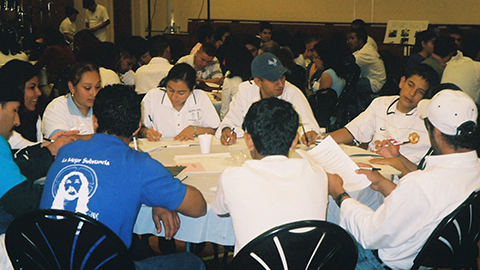I Encuentro
The I Encuentro (1972) allowed us to come out of the shadows and to express our needs, aspirations, and contributions as baptized persons livening in the Church in the United States.
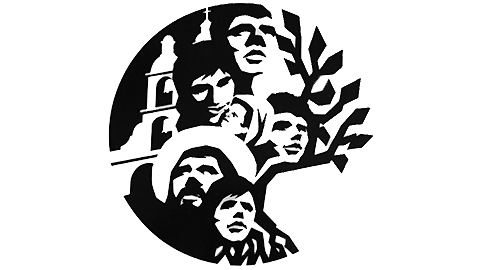
The I Encuentro (1972) allowed us to come out of the shadows and to express our needs, aspirations, and contributions as baptized persons livening in the Church in the United States.
The first encuentro called for a national episcopal committee for the Spanigh speaking, the establishment of a Secretariat (from a division for the Spanish-speaking), and the establishment of pastoral institutes. It also focused on issues affecting Hispanics at the national, regional and diocesan levels, Comunidades Eclesiales de Base, ministry, lay apostolate, liturgy, religious education and catechetics, Catholic schools, and the social and economic challenges of the time.
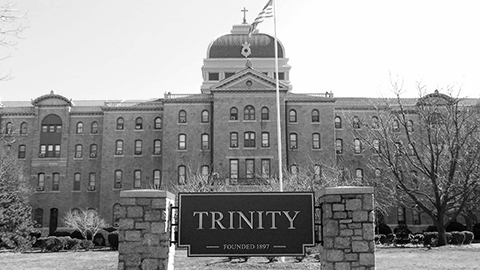
In the II Encuentro (1977), we identified ourselves as a community of Hispanic Catholics that is diverse yet united in faith, history, culture, and language. We also discerned a way of being a Church based in the ecclesiology of communion and a preferential option for the estranged and those who live in poverty.
More than half of the workshops were on Evangelization, which was the main theme of the encuentro, including: Ministries for Evangelization; Evangelization and Human Rights; Evangelization and Integral Education; Evangelization and Political Responsibility; and Evangelization and Unity in Pluralism.
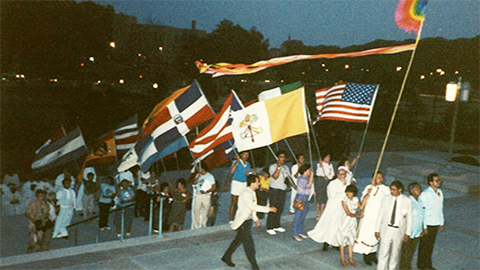
The III Encuentro (1985) allowed us to raise our voice to articulate a clear direction of the Church’s response to the Hispanic presence and our response as Church. This vision was recorded in the Plan Pastoral Nacional del Ministerio Hispano (1988) and in a model of a Church that is evangelizing, communal, and missionary.
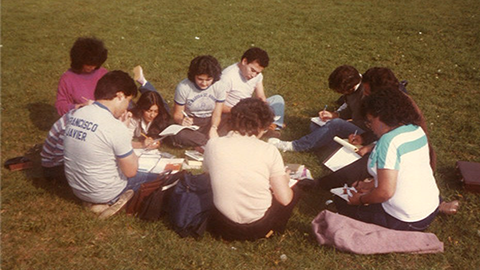
Throughout the process of the III Encuentro, the people's reflections underlined a concrete preoccupation with a need for formation of their leaders. Certain key points appeared as a basis for the conclusions of the III Encuentro Nacional Hispano de Pastoral. The conclusions of the III Encuentro, captured in the document "Prophetic Voices", were used as a guide to formulate the National Pastoral Plan for Hispanic Ministry.
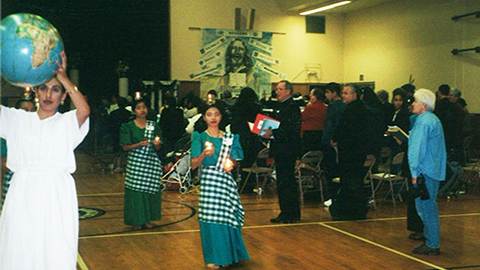
The Encuentro 2000 allowed us to host and to share an experience of Encuentro with all of the cultures and races that make up the Church in the United States. The vision of a Church where all are welcome emerges from our most profound identity like a community of mestizos and mulattos that are pilgrims in this land and called to be wings of solidarity with the many faces in God’s house.
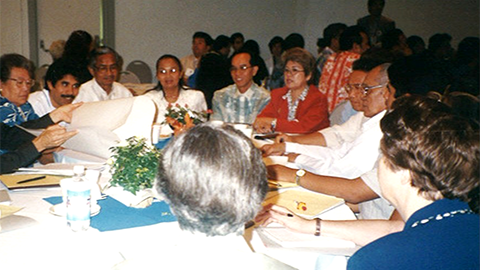
Bishop Barnes, then Chairman of the Bishops' Committee on Hispanic Affairs, referring to the Hispanic Catholic in the United States and to the three previous national encuentros, said, "Hispanic and Latinos are a tremendously important part of the Catholic Church in the United States with wonderful gifts of faith and spirituality to share. These encuentros have given them an opportunity to pray and share and listen to and with one another. As we begin the Third Millennium of Christianity, Hispanic Catholics in the United States want to gather once again with all their brothers and sisters in the Church to celebrate the cultural richness of the Catholic faith and to plan for new ways of evangelizing."
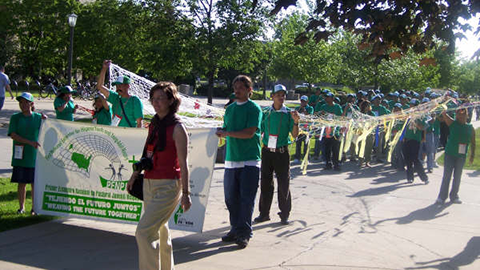
The Primer Encuentro Nacional Hispano de Pastoral Juvenil (2006) allowed us to listen to the voices of Hispanic/Latino youth and to discern the best ways to respond to their needs and aspirations, as well as to recognize their contributions as privileged protagonists of the present and future Church in the United States.
